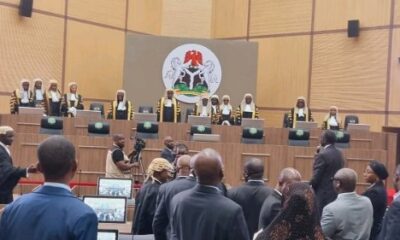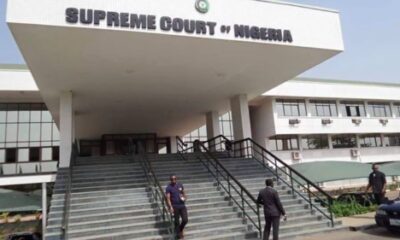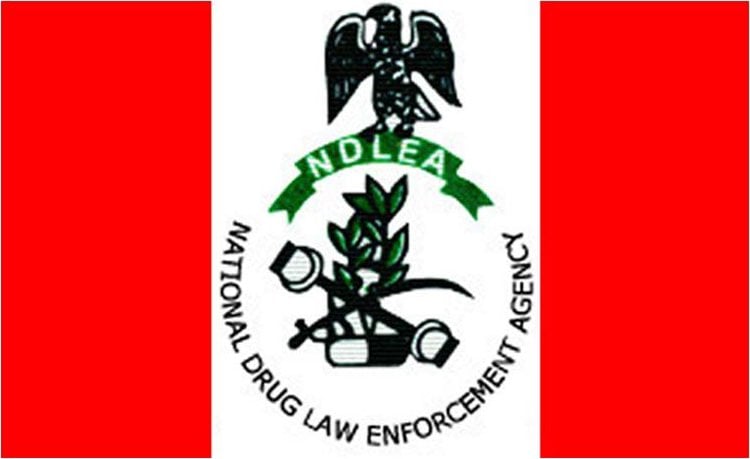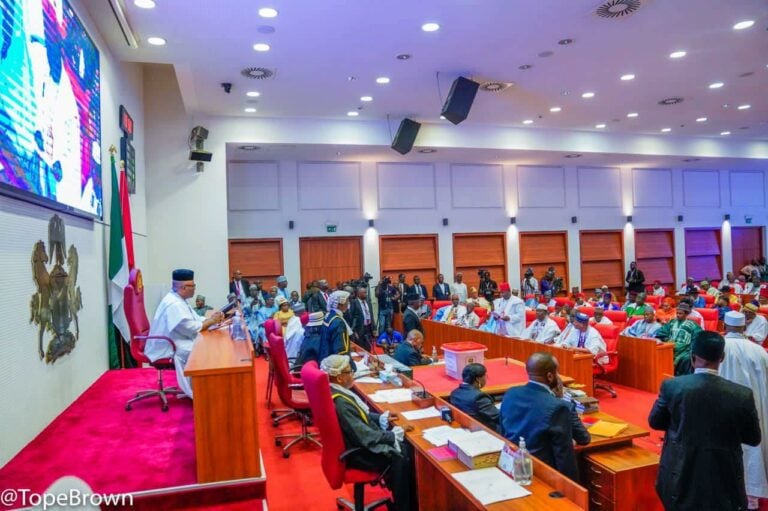President Bola Tinubu on Wednesday declared a nationwide security emergency, directing the army, police, and intelligence agencies to immediately expand recruitment and deploy thousands of additional personnel across the country.
He also appealed to the National Assembly to begin the legislative process for establishing state police as the country battles a sharp rise in kidnappings and terrorist attacks recorded over the past week.
However, in an unusual break with the executive, several Senators and House of Representatives members criticised the Federal Government for negotiating with bandits involved in recent abductions in Kwara and Kebbi states.
The lawmakers insisted that all negotiations with the terrorists be stopped and called for sanctions against the official who ordered the withdrawal of troops from Government Girls Comprehensive Secondary School, Maga, Kebbi State, where 24 students were abducted on November 17.
Four days after the Kebbi incident, bandits also attacked St. Mary’s Catholic School, Papiri, in Agwara LGA of Niger State, abducting more than 300 pupils and 12 teachers.
During the Kebbi operation, the vice principal, Hasan Makuku, was shot dead, while the principal sustained injuries. About 50 students managed to escape, but the others remain in captivity.
In a separate attack, gunmen stormed a CAC church in Kwara State, killing at least two worshippers and kidnapping 38 people. While the church victims were released on Sunday and some students freed on Tuesday, the incidents prompted the shutdown of numerous schools in Kebbi, Bauchi, Yobe, Adamawa, Taraba, Plateau, Niger, Katsina, and Kwara states.
The Federal Government also ordered the closure of 41 Federal Unity Colleges nationwide.
The Presidency defended its negotiations with the bandits, explaining that the priority was securing the safe release of the hostages.
Presidential adviser Bayo Onanuga dismissed speculation that ransom was paid, saying security agencies refrained from storming the kidnappers’ hideout because the victims were being used as human shields.
“What sometimes restrains them from going after them is the risk of collateral damage. They go about abducting our people, and they use them as a shield so they will not be attacked. So, they don’t just want to be attacking them. They need to be sure that they are not using our people as a kind of shield,” he stated.
But lawmakers rejected that defence, arguing that such an approach could embolden criminal groups and deepen nationwide insecurity.
A heated debate erupted in the Senate as legislators warned that the country was “under attack” and at risk of losing public confidence amid the surge in kidnappings.
The confrontation occurred hours after the Senate passed a motion applauding President Tinubu and security agencies for rescuing abducted victims in Kwara and Niger states.
The motion, sponsored by Senator Asiru Yisa (Kwara South), also called for the creation of a Joint Task Force across the Kwara–Kogi corridor, which security officials describe as a major escape route for bandits.
Yisa expressed the chamber’s concern over the attack on Christ Apostolic Church, Eruku, where two worshippers were killed and 38 abducted. He also raised alarm over reports that soldiers were withdrawn from the Kebbi school hours before the assault.
Deputy Senate President Barau Jibrin said the worsening violence showed Nigeria must expand its partnerships.
“We should seek assistance from overseas, urging collaboration with global partners to stem the crisis,” he said, maintaining that the country could still tackle insecurity with proper systems in place.
Senate Leader Opeyemi Bamidele described the coordinated attacks as a defining moment for Nigeria, warning that complacency could lead to disaster.
While appreciating the rescue efforts, he questioned why there was no information on terrorists neutralised during operations and cautioned colleagues against political dramatics.
Bamidele urged introspection within the Senate, saying, “If we are calling on the President to rejig the security architecture, we must also look into our own arrangement. I am not impressed with our Committee on Security and Intelligence. We should rejig it ourselves.”
Senator Enyinnaya Abaribe opposed efforts to blame previous governments and insisted the current administration must accept responsibility. He highlighted reports of troop withdrawal before the Kebbi attack, saying, “Who asked them? Nobody knows. If I were the Commander-in-Chief, I would demand answers.”
Senate President Godswill Akpabio expressed concern that intelligence failures and internal sabotage were undermining security efforts, citing allegations that the location of a brigadier general killed in Borno was compromised.
He also noted that despite security advisories issued to schools in Kebbi, bandits still struck with ease.
Tension rose when Senator Seriake Dickson warned that Nigeria was “losing prestige and integrity” amid continuous attacks, accusing the majority caucus of glossing over the crisis. His comments provoked protests from APC senators, leading Akpabio to mute his microphone.
As some lawmakers reiterated claims that security agencies were aware of the terrorists’ locations and motives, Akpabio cautioned against framing the crisis along religious lines.
“This is orchestrated to damage the image of democracy. There is nothing like targeting Muslims or Christians. It is an attack on all. This country is under attack,” he said.
Senator Adams Oshiomhole defended President Tinubu and called for an investigation into the troop withdrawal in Kebbi.
“Who ordered the military to withdraw? That person should be tried for terrorism. The Senate should adopt this demand among its resolutions,” he said, also expressing concern about inconsistent sentencing in terrorism cases.
Some senators renewed calls for the death penalty for kidnappers.
Reps Tackle Tinubu
A coalition of lawmakers from all six geopolitical zones condemned the Federal Government’s handling of the security crisis, accusing President Tinubu of “abdication of responsibility.”
During a House of Representatives special session on Tuesday, lawmakers urged immediate action to address the national emergency.
The coalition’s statement, issued under the banner “House to the Rescue,” criticised negotiations with bandits and accused the government of legitimising criminality.
The group — comprising members Muhammed Soba, Zakari Mohammed, Olasupo Abiodun, Sadiq Ibrahim, Uko Nkole, and Bassey Ewa — said the negotiations signalled weakness and endangered citizens.
They argued that “No functioning nation rewards criminality with dialogue,” listing examples from Colombia, Mexico, Afghanistan, Somalia and Mali to show how negotiating with violent groups worsened conflicts.
The lawmakers warned that talks with bandits would escalate violence, noting that fresh abductions were recorded in Kano, Kwara, and Kebbi shortly after earlier hostages were released.
They urged the Federal Government to halt all negotiations, launch an intelligence-driven nationwide operation, and publish a clear security strategy with accountability mechanisms.
The group also called for National Assembly oversight to investigate officials involved in unauthorised negotiations.
ADC Warns Against Negotiations
The African Democratic Congress criticised the Federal Government’s approach, warning that secret negotiations could worsen the security crisis.
ADC National Publicity Secretary Bolaji Abdullahi said the government must clarify the “opaque and troubling manner” in which released hostages regained freedom.
Abdullahi questioned statements from the police chief and the Presidential spokesman that suggested the kidnappers surrendered voluntarily, describing them as unacceptable.
He asked whether the government paid ransom or exchanged concessions and warned that bandits could acquire new weapons even if they surrendered old ones.
The ADC condemned the closure of unity schools, saying the move emboldened terrorists and undermined national education.
Abdullahi said the action aligned with the ideology of Boko Haram and suggested Nigeria was unable to protect its schoolchildren.
The ADC urged the Federal Government to revive the Safe Schools Initiative, deploy NSCDC officers to unity schools, and intensify efforts to rescue abducted children.
Atiku Joins Criticism
Former Vice President Atiku Abubakar also faulted the Federal Government for negotiating with terrorists, questioning why the criminals were not arrested or neutralised if security agencies tracked them as claimed.
He said the government’s narrative suggested incompetence and that terrorists were being empowered as “an alternative government.”
Tinubu orders massive recruitment
In a statement signed Wednesday, President Tinubu authorised the recruitment of an additional 20,000 police officers, raising the current recruitment quota to 50,000, and directed the military to likewise enlist more personnel for rapid deployment.
He approved the temporary use of National Youth Service Corps camps as police training depots to fast-track deployment.
Officers withdrawn from VIP escorts are to undergo “crash training” before being redeployed to high-risk areas.
Tinubu also authorised the Department of State Services to deploy all trained forest guards to flush out terrorists and bandits and approved further recruitment.
He urged nationwide vigilance and encouraged citizens to report suspicious movements to security forces.
The President praised security agencies for rescuing abducted students in Kebbi and worshippers in Kwara, and noted that efforts were ongoing to locate pupils still missing in Niger State.
He also asked the National Assembly to begin work on legislation enabling states to establish police forces.
Tinubu further advised states to avoid placing boarding schools in remote areas without adequate protection and urged churches and mosques to seek security coverage in high-risk zones.
He restated the administration’s commitment to livestock reform and encouraged herder groups to embrace ranching through the Federal Ministry of Livestock Development.

 BIG STORY2 days ago
BIG STORY2 days ago
 BIG STORY3 days ago
BIG STORY3 days ago
 BIG STORY22 hours ago
BIG STORY22 hours ago
 BIG STORY2 days ago
BIG STORY2 days ago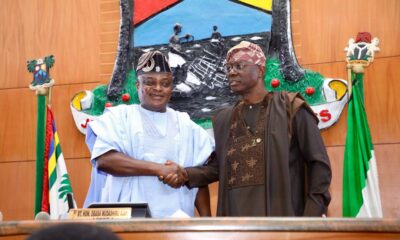
 BIG STORY1 day ago
BIG STORY1 day ago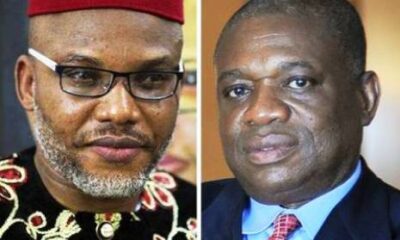
 BIG STORY3 days ago
BIG STORY3 days ago
 BIG STORY20 hours ago
BIG STORY20 hours ago
 BIG STORY3 days ago
BIG STORY3 days ago










